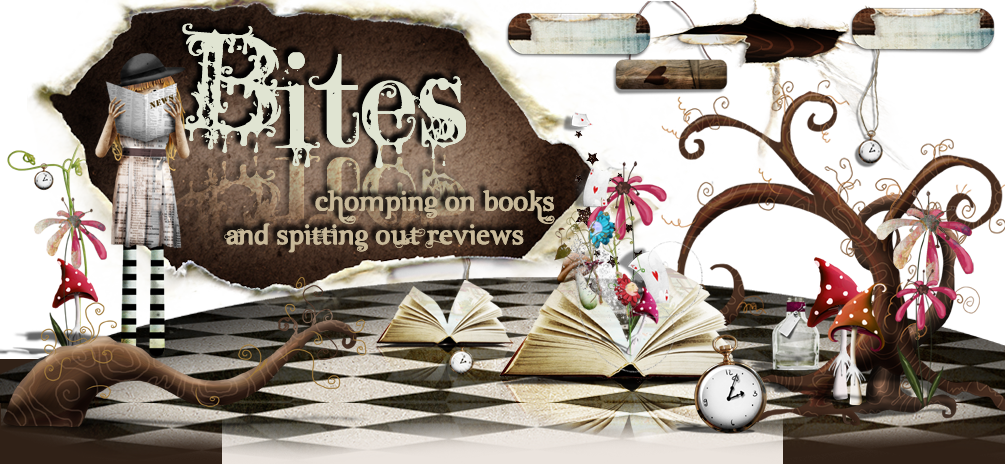 First published in 2008.
First published in 2008.All over the country, a strange phenomenon is occurring. Some teenagers who die aren't staying dead. They are coming back to life, but they are no longer the same. Termed "living impaired" or "differently biotic," they are doing their best to blend into society again.
But the kids at Oakvale High don't want to take classes or eat in the cafeteria next to someone who isn't breathing. And there are no laws to protect the differently biotic from the people who want them to disappear - for good.
With her pale skin and goth wardrobe, Phoebe Kendall has never run with the popular crowd. But no one can believe it when she falls for Tommy Williams, the leader of the dead kids: not her best friend, Margi, and especially not her neighbor Adam, the star of the football team. Adam as realized that his feelings for Phoebe run much deeper than just friendship. He would do anything for her - but what if protecting Tommy is the one thing that would make her happy? (book flap blurb)
I like my fiction as stories, first and foremost. I read fiction so that I can escape from the world churning around me. 99.9% of the time, authors write with some kind of meaning in their writing, a lot of that is subconscious. A lot of fiction writers write the story first but, without helping it, some kind of theme will usually emerge from the fun. That's fine. What I don't like is when my fiction is really just a ruse to beat people about the head with a message they "should" be learning. That, to me, is not the purpose of fiction. Fiction is escapism. What fun is it to escape pressing matters and run into the arms of . . . pressing matters? Boo.
Yeah, I get it. Intolerance sucks. Idiocy sucks. Irrational thinking sucks. But why couldn't the story just be told instead of force-feeding the readers with the lesson of tolerance? People are people, no matter what their skin color is. And in this case, no matter what their pulse status is either. Ok. I get it. Stop stuffing it down my throat and just tell me the damn story. This aspect alone, of heavily infusing such an issue, really writing about an issue thinly veiled by a zombie story, really kept turning me off to the book. I just don't like being preached to. I really don't.
However . . .
I liked Pete's story. Not because he's a bastard but because there's more going on there than a love-in. He's probably the most dynamic human in the entire piece because he has this huge issue with Julie, this jealously that fuels him. It makes you wonder, "what if she were to come back? would he be alright then?" He's much more polarizing and much harder to figure out. You know what Adam's going to do. You know what Phoebe and Margi are going to do. You know what Tommy's going to do. But Pete . . . he could go berserk or he could punk out but what are his motivations? Is it because he hates zombies? Or because he's jealous because his love didn't come back like the rest of them? I absolutely love that dynamic about him, that polarizing effect of his personality. There is another side to him, the side that died with Julie but still rears up every once in a while. Him I'd like to follow around.
The end of the book was in and of itself redeeming. Not because of the actions of the characters but because we finally get catapulted inside the head of a dead kid and we finally get to see, even though it's just for a second, what they really think, how they feel and how they want to act. It's truly terrifying; being trapped inside your own body and not being able to act or say what your brain so desperately wants to do. There's a disconnect with a fully functioning brain. How horrible is that? That is what interests me.
This is where my science geek comes out. I get wrapped up in the nuances of situations like this. How are they not rotting? How did they come back? The brain controls muscle movement. If being dead means brain death, how are they able to move? Talk? Think? Play football? Love? Screw the story. Give me a book on just that and I'll be in heaven.
But at the end of the day, even though I fully understand the glaring message this book is sending, it's not the same, is it? The racial divide in this country is about skin color. Nothing more than varying degrees of pigmentation in the epidermis. This book is about regenerated corpses. They are dead. No heart beat. No brain activity (for you are not legally dead until you are declared brain dead). They died, have risen from the dead and are now walking around. Yes, I understand the parallels of the lack of understanding. The sub-humanizing of Africans during the slave trade were equal parts ignorance and intolerance. Had those slave masters been tolerant enough to understand, they would have been made less ignorant. But in an age where we fully understand that a homo sapien is a homo sapien regardless of what the outside looks like, and we have scientific proof to substantiate that, how can the irrationality of being freaked the fuck out about reanimated corpses walking around be somehow illogical and ignorant? They're the walking dead.
I love my best friend to death. But if she died and however long later appeared at my door, I wouldn't put it past myself to grab a shovel and start swinging. Why? BECAUSE SHE'S A REANIMATED CORPSE. There's a difference between an irrational fear and a rational fear. An irrational fear is being afraid of someone based solely on their skin color, especially in a day and age when we know better. A rational fear is being afraid of someone that just climbed out of their own grave. Yes, over time, when society learns the facts as to the whys and hows of the situation, the fear would subside but don't kid yourself to think too many people are going to have the first reactions of *hug* to someone that carries a legal death certificate, especially when the phenomena is just beginning. The bigger hurdle is moving beyond that initial knee jerk fear into the level of tolerance and eventual understanding. Some will be quicker to do it, yes, but I think nearly all will have the same intial reaction. I do get it. Same message as the color of skin but there's a big different between dark skin and no pulse.
Aside from all of that, I felt the storytelling was a big robotic at times and a lot of the dialogue was stilted, especially amongst the teenagers. The reoccurrence of "it is" in speech really bugged me. Such a small thing, I know, but how often do you say "it is" instead of "it's"? It's simple things like contractions that can make dialogue more realistic. They don't have to be all slanged up but the propriety of a lot of the conversations just didn't jive with my realism flow.
At the end of the day, this was one of those books that had enough in it to keep me reading to the end and has me intrigued to read the sequel. Kudos to Waters for using a unique turn to send a familiar message. It's not something I'm going to rush out and buy. I'll read it in my own time. But just the prospect of being able to read and see the story from behind the eyes of a zombie is far too good to resist. If you can get past the skull-smashing of the message 2x4 the novel has, it's a pretty decent read.















11 comments:
I want to actually comment on this, but I have to go back to work (blame your other blog for eating up my time).
But this I wouldn't put it past myself to grab a shovel and start swinging. Why? BECAUSE SHE'S A REANIMATED CORPSE.
Made me lol so much I'm getting weird looks from most of the people in the breakroom.
>_>
I agree that the equality message seems a bit off for rational fear. Just out of curiosity, did religion play a part in any way? I would think that dead people walking 'round would shatter some people's idea of an after life...might have been an interesting development.
Hmm, might actually have to disagree with you here, D. :) I loved that this book had a strong, if rather obvious, message; it makes for interesting ways in which a paranormal zombie book might be able to be used to teach an important lesson. And yes, maybe seeing your dead son or daughter show up reanimated on your doorstep would freak you out, but if he or she is thinking, talking, and acting like an living person, and if they want the same rights as other living humans, then who are we to say they're nonhuman and deserve to die--again?
When I read this book, I wasn't thinking about the race issue, but about a topic that's closer to modern days: the acceptance of homosexuality into our society. I'm probably not putting as much thought into this as you are, but this sentence that you wrote here:
"But in an age where we fully understand that a homo sapien is a homo sapien regardless of what the outside looks like, and we have scientific proof to substantiate that, how can the irrationality of being freaked the fuck out about reanimated corpses walking around be somehow illogical and ignorant?"
made me think: then why are people still freaked out about homosexuals, if they look the same and if they're scientifically proven to be humans? Many of us more enlightened ones would like to think that most of the racism and prejudice that our world has experienced is long gone now, but really it just pops up again and again in different forms.
Not trying to disagree with your insightful review here, of course, just... sparking some new thought? Um? Maybe? Hopefully? :)
I'd love to hear your thoughts, Stormy!
Sonja, it did but very slight when compared to everything else. There were references to the Apocalypse but it didn't go beyond that. I'm not religious and even I was thinking about that.
Steph, I heart you so much for your thoughts! And disagree all you want if that's what you want! Creates for interesting conversation!
To your first paragraph, but would people stop freaking out long enough to realize that these living dead had cognitive human functions? Would they wait around long enough to realize that, while dead, they're still very close to human? Or would they grab a shovel and start slamming because there's a walking corpse on their front lawn? It's not like zombies are depicted as being all that kind and friendly to begin with.
To the homosexuality thing, I think the degrees there are vastly different. Their actions are seen as sins against god by those that believe it. Humans sinning against god. My understanding of the far right's side in keeping homosexuality at bay was because it's something that's not inherent but learned and if you can keep these people from legally marrying and trying to force alternate views on them, they'll eventually "come around" and "realize" that they just made "the wrong choice."
I don't see that as being the issue in this book. It's not about the perception of choice versus inherent quality. That discussion can be argued into the ground and back again. It's about the *obvious* lack of choice. Africans can't choose their skin color. They are black. They can not help having darker skin and while homosexuality can easily be "hidden," the color of your skin can't. See what I'm saying?
You can hide who you are but your outward appearance will kid no one. Africans were enslaved because they were thought less than human. There were laws and Constitutional amendments declaring that blacks were not as human as whites, they didn't count as much, they were lesser beings. People with different sexual orientations, while fighting for equal rights to marry, have not been denied their inherent humanity because of who they are. There have never been laws restricting the rights and access of a homosexual because of the "fact" that they were somehow less than human. Their restriction on marriage is based on the bleed of church into state, something that people obviously have a hard time separating despite that pesky little amendment to the contrary.
What I'm trying to say is that while banning gay marriage does make homosexuals appear less than worthy than the straights, no one doubts that they're any less human. Their beliefs and lifestyle are being doubted. Not their existence. The blacks, at one point, to the whites, were not human. They were something less than human. They didn't count. There weren't laws protecting them because such laws were only granted to human beings.
But at the end of the day, the fact that these kids are reanimated corpses puts a whole new spin on it. Does being dead revoke your right to being human? If you somehow defy the natural order of life, does that exempt you from the order of humans? Just as Africans have no control over their skin color, those kids have no control over the fact that they woke up dead. They can't help that. Are they supposed to kill themselves again to make things right? Does it make people close-minded to be tweaked that they're sitting next to a functioning corpse? The corpse issue lends its way to broadening the definition of human. Are you still human after you die? If it looks like a rose and smells like a rose, is it still a rose? Or can it be rose-scented perfume oil in a bottle? Is one somehow less than the other? One is derived from the other and through science and time and understanding, we learn that it's ok to dab the chemical on our wrists to smell nice. But at the beginning, before understanding, it could rightly be poison. It's understandable to expect a reaction.
Holy crap, where did I go with this? LOL!
Thanks for the honest review!
I try my best! :)
I didn't really mind the obvious message. I just minded that the story was so blah.
People should be afraid of the undead.
I'm afraid of zombies, seriously, and because of the mindless aspect. The rest of the classic monsters, usually there is some part you can fight on an intellectual level or bargain with, but zombies, they want to eat you, and that's it. They're driven to tear your guts out, and will keep going until, well, someone smacks them in the face with a shovel.
And, why is it only teenagers that are coming back? If it were me, I'd be looking for the government conspiracy that was secretly using flu shots to test a serum that would revive soldiers on the battlefield.
And...there are whole cliques of dead kids at these schools? What do they do, gather and go to another school out of their district just so they can be with their own kind? I don't know about you, but I didn't have that many people die at my high school. High schools. I went to three, and not one had someone who died. So...there's almost the increased mortality rate, so another factor for the conspiracy.
How to treat dead people? That's the question isn't it? I asked my best friend if she'd smack me with a shovel. She said yes. :(
We wouldn't be able to treat the dead normally. I'm sure as hell we wouldn't let them go back to high school. Shipped off to labs and experimented on is far more likely. I mean, what if their seemingly-normal consciousness is temporary, and the brain is in fact quickly rotting away to the point where you'll just have a brain-hungry teenager? There would be absolutely no guarantees about how a given zombie would act from one day to the next, nor that their state could be maintained. It's far more likely that it couldn't.
And how...*goes back and skims review* ok, so there's also no info about how they're maintained? Do they still eat and stuff? Sorry to quote Birdy (I'm gonna ramble about her in a second, apologies also for that), but are they really zombies, or are they "re-alive" people? What, exactly, defines them as zombies, except for the fact that they came back from the grave?
I have two dead girls. One, Stef, is technically a "re-alive" person. She doesn't rot. She doesn't go septic. Her brain functions, and blood flows around her body. She's not a zombie.
The fact that she has died and comeback, however (in something that, yanno, isn't a clinical death), leads to her losing all of her human rights. She's dead, and not supposed to be alive again, so therefore she no longer has any human rights. It's not a governmental rule, but it's one that makes sense.
And this is in a 'verse where magic is accepted! And the method of her being brought back was also magic. She still ends up being a dead girl with no rights beyond what those in authority choose to give her. And since, yanno, death certificates and stuff have been lodged, it wouldn't exactly be easy for her to go open a bank account.
How do the dead kids in this book, like, get a licence or whatever, when they're legally dead? Are they legally dead, or do they get some special dispensation? And how do businesses treat them? "Oh, you're dead, since I don't know if you'll be back to collect this lay-away in two months, I'm going to charge you a non-refundable fee of X".
My other deadie girl, Birdy, who is a lot more relevant to this issue (though I had to touch on the rights thing first), is a zombie. She died, her body began to rot, then her soul got reattached. Again magic.
This is a character who is suffering permanent brain damage. A character who only has only has about 70-80% control over their speech centres, and that doesn't even touch on her critical thinking skills, which are severely, severely impaired.
This is a character, who, aside from being able to talk, has had to relearn *everything*. As in, "no, you really don't use a spoon like that". And whose greatest achievement to date, is being able to do the laundry in the right order.
(Hey, do you know your comments box has a character limit. >_> Then again, no one else has probably been this crazy...)
Cont'd from above.
Her entire life is just cognitive dissonance - she can watch one TV show, one cartoon, describe it one way, stop and think for a second, then describe it in another way, completely counter to the first opinion, and not realise that she's actually watching the same show.
It's not like her as a living person was in any way impaired, it's just, yanno, that death had an effect on her brain.
Oh yeah, and also, like a corpse, if submerged in water for too long, Birdy will bloat. Do the perfect, pale, dead teenagers bloat if they swimming?
Dead people aren't supposed to have happy, shiny lives. Dead people aren't supposed to have lives, but if they do, they're supposed to be completely messed up, cause, yanno, they're dead.
I hear you on that one, Lenore. There wasn't much by the way of oomph in much of any of it despite the fact that, at the end of the day, it's a zombie book.
I had no idea my comment box has a character limit! You have popped that cherry, Stormy!
It's really blurry as to what these kids actually are. However they died, that's how they come back. There's Tak, Smiley, whatever you want to call him, who has a gaping hole in his face. That's not going to heal. But none of them appear to be rotting. But they can't eat because their bodies don't function as they should. But their thought processes seem normal.
I'm with you in the "lock them up and study them" department. Considering these kids are defying nature by stepping out of their own graves, wouldn't it be best to round them up and do massive studies on them instead of letting them integrate into society? You know, better to be safe than sorry? These aren't some new "species" of human-like things discovered in a rain forest. These are kids that died, have death certificates, and are now walking around again in the state in which they died. That's the major reason why the love-in attitude kind of peeved me. I mean, they're dead!
I was never really put off by the numbers though. Whenever the group was described at the house, it was always a couple dozen, maybe 40 tops. And they came from all over the country. So when you factor in the statistical average of teen deaths every year from car crashes, suicides, drug overdoses, whatever, I don't think the numbers are that off. I just think since the focus was on the dead kids, it seemed overwhleming.
As to the numbers - sorry, I got the impression that there was a clique of them at this school, and that was, yanno, indicative of the rest of the country (my bad).
40 tops, that's all the more reason to lock them up and study, to see why *these* kids are different...
Post a Comment